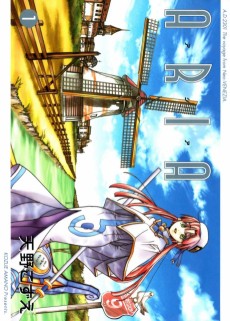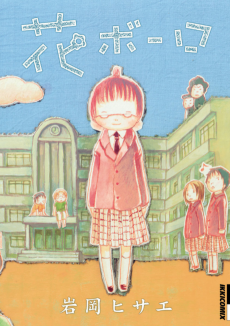DOSEI MANSION
STATUS
COMPLETE
VOLUMES
7
RELEASE
June 25, 2011
CHAPTERS
64
DESCRIPTION
Far in the future, humankind has evacuated the Earth in order to preserve it. Humans now reside in a gigantic structure that forms a ring around the Earth, thirty-five kilometers up in the sky. The society of the ring is highly stratified: the higher the floor, the greater the status. Mitsu, the lowly son of a window washer, has just graduated junior high. When his father disappears and is assumed dead, Mitsu must take on his father's occupation. As he struggles with the transition to working life, Mitsu's job treats him to an outsider's view into the various living-room dioramas of the Saturn Apartments.
(Source: Viz Media)
CAST
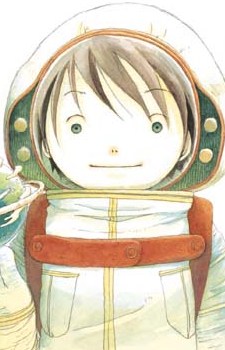
Mitsu
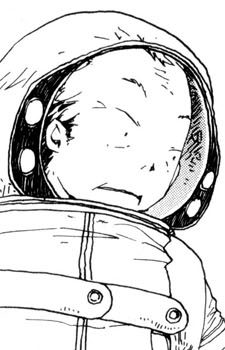
Jin
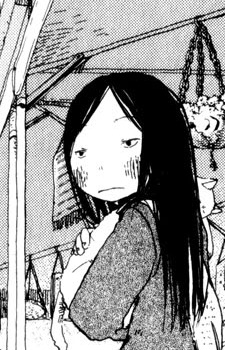
Sachi

Tamachi

Haruko
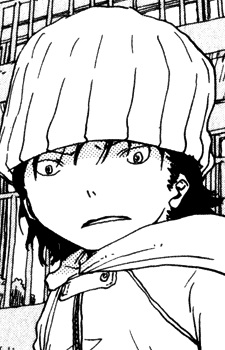
Makoto

Kayo
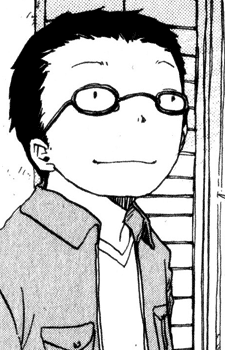
Souta
CHAPTERS
REVIEWS

NetzLain
70/100Reflecting on work, society, and connection while exploring humanity’s quiet struggles.Continue on AniListIf you are someone who believes in spoilers, be aware that this review will explore some of the main themes of the manga, and some key elements of the plot may be exposed.
Hisae Iwaoka’s Saturn Apartments is a reflective and profoundly human manga that meditates on work, society, and the quiet struggles of existence. It explores themes such as agency, loneliness, and systemic hierarchies while maintaining a tender and deeply empathetic tone. The story invites readers to reflect on the human condition, balancing existential questions with moments of warmth and resilience.
Trapped Lives and the Search for Meaning
The orbital ring, where humanity resides after abandoning Earth, is more than a futuristic setting, it’s a metaphor for entrapment. Suspended far above their origins, the characters are distanced not only from Earth but also from the freedom and connection they yearn for. Mitsu, the young protagonist, cleans the windows of the ring’s structure, offering glimpses into the lives of its isolated inhabitants.
Mitsu’s dangerous work becomes a microcosm of the human experience: navigating precarious heights, confronting mortality, and searching for meaning in a fragmented world. Whether it’s through relationships, recognition, or redemption, each character strives to leave a mark. This quiet determination to endure and connect underscores the manga’s exploration of what it means to be human.

The ring’s rigid hierarchy reinforces the sense of separation. The wealthy bask in sunlight in the upper levels, while the working class toils in the shadows below. Yet even those at the top face isolation, guilt and unfulfilled desires. Iwaoka’s nuanced portrayal resists simplistic divisions, showing how inequality harms everyone differently, creating a society where connection is scarce but deeply cherished.
Work Culture
Work lies at the heart of Saturn Apartments, portrayed with both critique and compassion. For Mitsu, cleaning windows is more than a job, it’s a way to connect with his dead father, find pride in his abilities, and connect with others. The act of creating something meaningful, even in a world that may not notice, reflects the quiet dignity of his labor.
Yet the manga doesn’t shy away from systemic critiques. It highlights the inequalities shaping the orbital society, where lower-class workers endure perilous conditions while the privileged enjoy relative comfort.
It’s clear that the orbital society is driven by hierarchies of capital and power, and no amount of individual effort can truly transcend those structures. The manga doesn’t shy away from this reality, reflecting the frustrations of living in a world where hard work doesn’t necessarily pay off.
As someone who considers herself to be anti-work—I work, but only as a means to stay alive, I don't think my work is important, meaningful or anything grandiose. I work, get money, and pay my bills—I find the theme fascinating because it resists a simplistic “work dignifies” message. Instead, the manga acknowledges the complex relationship people have with their labor.
Many lower-class workers toil in conditions that underscore their alienation—both from their labor and from the broader society. This alienation echoes Marxist critiques of industrial labor, where workers are disconnected from the products of their work and reduced to cogs in a machine. In contrast, Mitsu’s job—though physically perilous—allows him to engage directly with his environment and the people he serves, preserving a sense of agency and purpose. Despite this, Saturn Apartments asserts that dignity isn’t conferred by status or labor. It’s inherent to every individual. This message, in a world where work often feels dehumanizing, is deeply resonant.
Mitsu’s journey raises poignant questions: Is work inherently meaningful, or does its value depend on the meaning we assign to it? For Mitsu, work becomes a bridge, a way to see and be seen across the ring’s hierarchical divides. Even in an alienating system, his labor connects him to others, preserving a sense of agency and humanity.

Loneliness, Grief, and Fragile Connections
Isolation permeates the orbital ring, affecting every character regardless of class. Mitsu’s job places him on the periphery of people’s lives, where he witnesses their solitude. From wealthy tenants to struggling workers, each person grapples with grief, societal expectations, or the sterile detachment of their environment.

However, Saturn Apartments doesn’t leave its characters adrift. Small acts of connection—Mitsu’s quiet conversations, gestures of kindness, or moments of vulnerability—offer brief but profound reprieves. These fragile bonds don’t solve the characters’ problems but remind them, and the reader, of the enduring importance of empathy.
Grief plays a central role in Mitsu’s journey, particularly in how it shapes his identity. The death of his father casts a long shadow over his life. Yet Mitsu transforms this grief into a source of strength, using it to understand his father’s legacy and connect with others. This evolution mirrors how grief, though painful, can catalyze growth and deepen connections.
Hope in a Fragmented World
If Saturn Apartments asks one central question, it’s this: How can we find hope in a world that feels isolating and unjust? The manga’s answer is quiet but profound: hope lies not in grand gestures but in the small moments: the pride in a job well done, a kind word, or the joy of playing with Fuyu.

These acts of persistence and connection become forms of defiance against a dehumanizing system. They remind us that even in the most constricting circumstances, our individual actions carry meaning. By focusing on these intimate details, Saturn Apartments delivers a message that is both personal and universal: hope is found in the quiet determination to live, connect, and endure.
Conclusion
Saturn Apartments offers a human meditation on work, society, and connection. It doesn’t provide easy answers but invites readers to sit with its questions: How do we find meaning in our lives? How can we navigate an indifferent world? And where can we find hope amidst isolation and loss?
Through its delicate storytelling and richly drawn characters, Saturn Apartments reminds us that even in the most confining circumstances, there is dignity in simply existing, caring for others, and finding beauty in the small things. I would recommend it to anyone seeking a story that speaks to life’s quiet complexities.
SIMILAR MANGAS YOU MAY LIKE
 MANGA Sci-FiYokohama Kaidashi Kikou
MANGA Sci-FiYokohama Kaidashi Kikou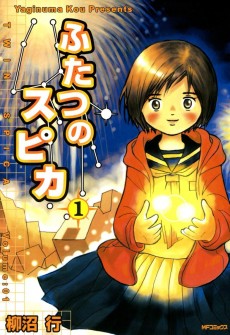 MANGA DramaFutatsu no Spica
MANGA DramaFutatsu no Spica MANGA Sci-FiUchuu Kyoudai
MANGA Sci-FiUchuu Kyoudai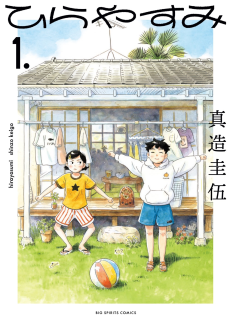 MANGA ComedyHirayasumi
MANGA ComedyHirayasumi MANGA ComedyShimeji Simulation
MANGA ComedyShimeji Simulation
SCORE
- (3.6/5)
MORE INFO
Ended inJune 25, 2011
Favorited by 56 Users



